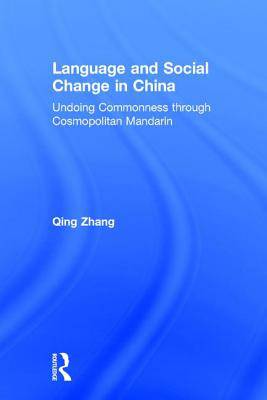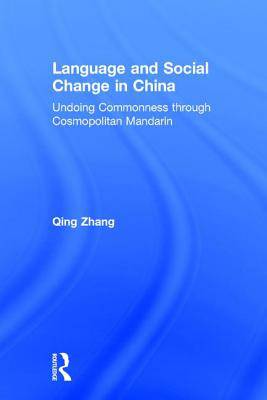
- Retrait gratuit dans votre magasin Club
- 7.000.000 titres dans notre catalogue
- Payer en toute sécurité
- Toujours un magasin près de chez vous
- Retrait gratuit dans votre magasin Club
- 7.000.0000 titres dans notre catalogue
- Payer en toute sécurité
- Toujours un magasin près de chez vous
Language and Social Change in China
Undoing Commonness Through Cosmopolitan Mandarin
Qing ZhangDescription
Language and Social Change in China: Undoing Commonness through Cosmopolitan Mandarin offers an innovative and authoritative account of the crucial role of language in shaping the sociocultural landscape of contemporary China. Based on a wide range of data collected since the 1990s and grounded in quantitative and discourse analyses of sociolinguistic variation, Qing Zhang tracks the emergence of what she terms "Cosmopolitan Mandarin" as a new stylistic resource for a rising urban elite and a new middle-class consumption-based lifestyle. The book powerfully illuminates that Cosmopolitan Mandarin participates in dismantling the pre-reform, socialist, conformist society by bringing about new social distinctions. Rich in cultural and linguistic details, the book is the first of its kind to highlight the implications of language change on the social order and cultural life of contemporary China. Language and Social Change in China is ideal for students and scholars interested in sociolinguistics and linguistic anthropology, and Chinese language and society.
Spécifications
Parties prenantes
- Auteur(s) :
- Editeur:
Contenu
- Nombre de pages :
- 198
- Langue:
- Anglais
Caractéristiques
- EAN:
- 9780415708074
- Date de parution :
- 21-09-17
- Format:
- Livre relié
- Format numérique:
- Genaaid
- Dimensions :
- 152 mm x 229 mm
- Poids :
- 407 g

Les avis
Nous publions uniquement les avis qui respectent les conditions requises. Consultez nos conditions pour les avis.






